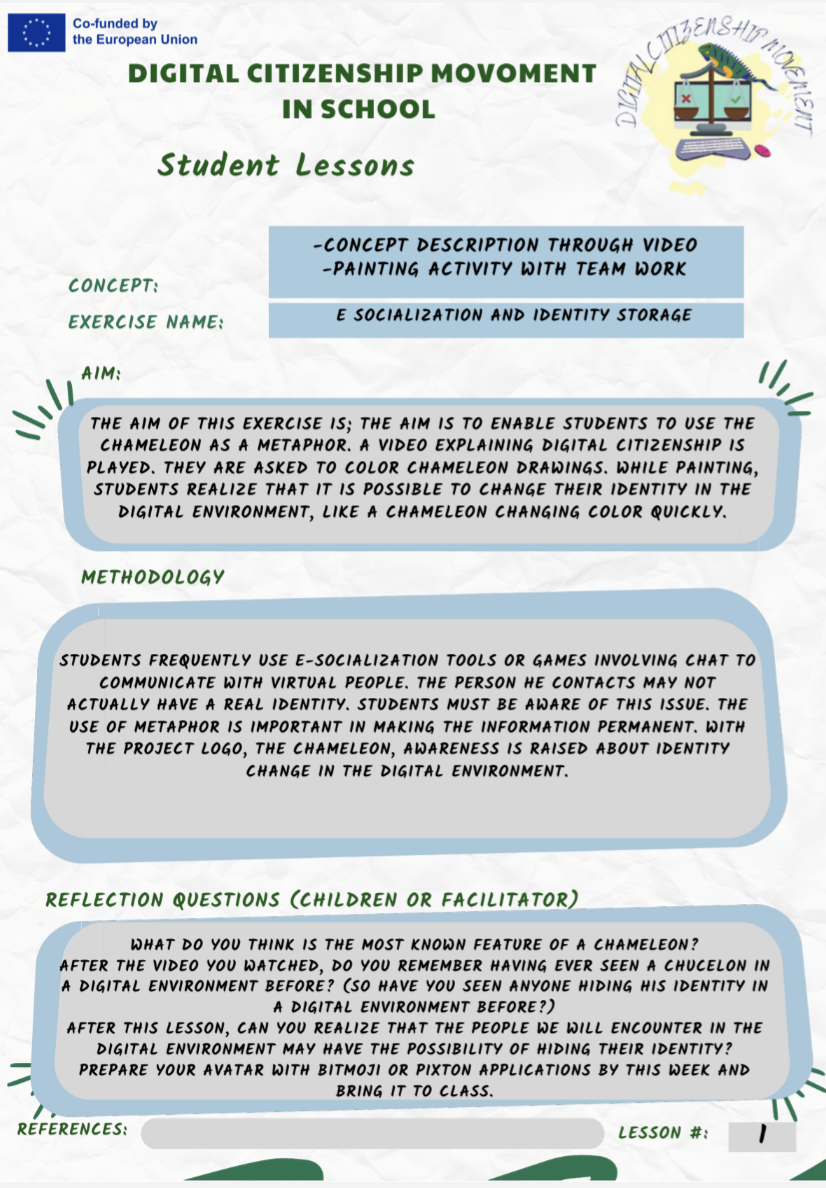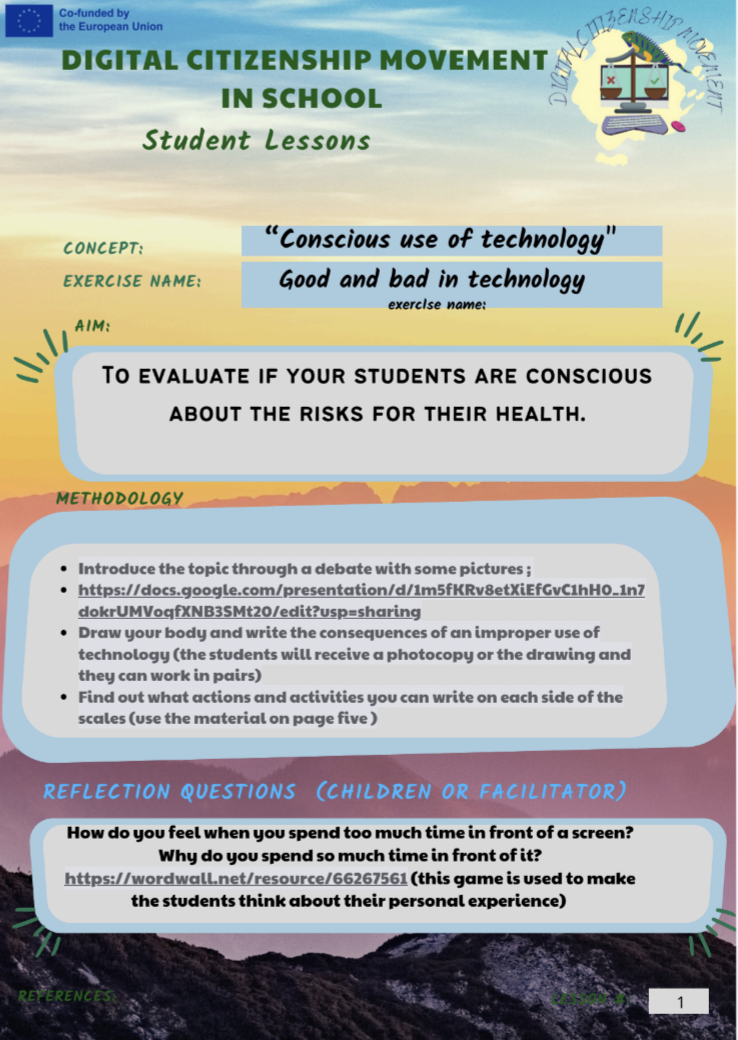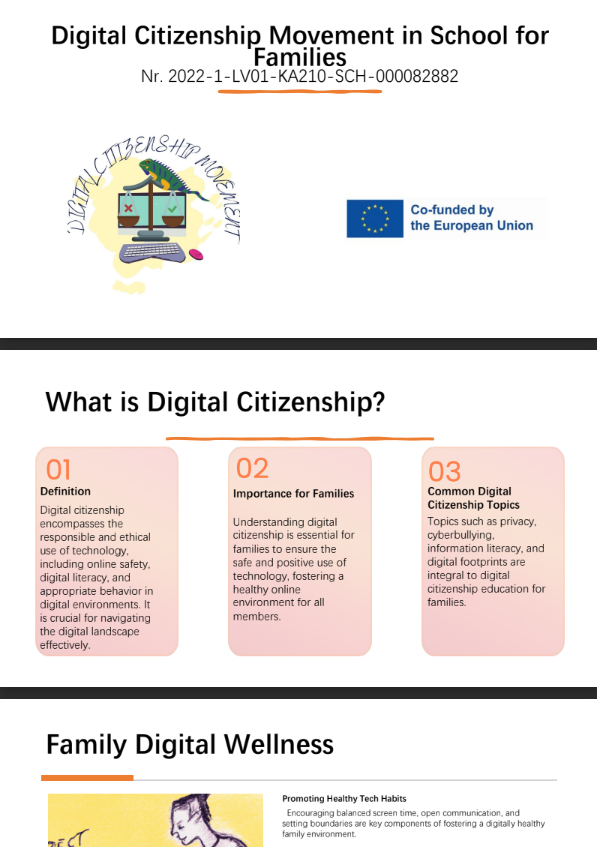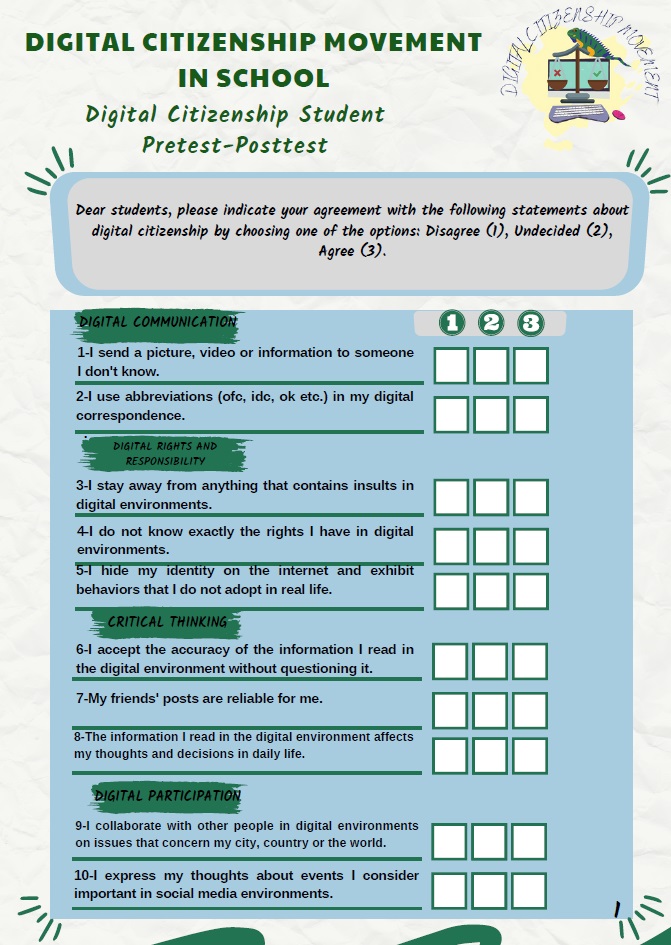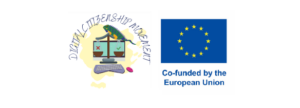CHALEMUN LINT INTRO FILM is the promotional video emphasizes the project’s desired outcomes, featuring the partner countries, the EU logo, and the official project logo. The video includes a chameleon, the project’s mascot, who delivers messages about digital citizenship through its changing colors. Just as the chameleon changes color to blend into its surroundings, the information people share on social media can vary greatly and may not always reflect the truth.
The video highlights:
The importance of being cautious when sharing personal information on social media and suggests using avatars instead of real images.
The fact that not everything seen or read on social media is ethical or accurate.
The characteristics of a conscious internet user and what they should be mindful of.
By focusing on these points, the video reinforces the project’s goals and ends by addressing its objectives.
1. Module “Use of Chameleion as a Metaphor”
The chameleon metaphor is used in this module to draw attention to the fact that people and situations can be portrayed completely differently on the internet. An attempt was made to attract the students’ attention with the chameleon metaphor, and activities appropriate to their level were carried out.
2. Module “Conscious Digital Student Modules”
As part of the “Digital Citizenship Movement in School” project, we developed training modules for students and teachers. These modules aim to educate on digital citizenship, emphasizing responsible and ethical technology use.
Student Training Modules: Topics include online safety, digital literacy, cyberbullying prevention, and ethical behavior. Interactive activities help students understand and practice positive online behaviors.
Both modules emphasize open communication, boundaries, and positive digital behaviors to foster a safe, supportive digital family environment.
3.Module “Digital Citizenship Family Module”
As part of the “Digital Citizenship Movement in School” project, we developed training modules for parents. These modules aim to educate on digital citizenship, emphasizing responsible and ethical technology use.
Parent Training Modules: These modules guide parents on promoting safe and responsible digital habits. Topics cover privacy protection, managing screen time, recognizing cyberbullying, and understanding digital footprints. Parents receive practical tips to support their children’s digital education.
4. Pre-test and post-test questionnaires
The pre-test and post-test questionnaires are freely available to download and use to monitor participants’ knowledge.
5. Statistical results
Digital Citizenship Movement in School” pre-test and post-test results analyses
The “Digital Citizenship Movement in School” project aimed to enhance students’ digital citizenship skills. Analyzing pre-test and post-test results, the project had a significant positive impact.
Digital Communication: Improved caution, reducing risky behaviors.
Digital Rights and Responsibilities: Increased awareness of digital rights and ethical behavior.
Critical Thinking: Enhanced ability to question online information.
Digital Participation: Greater engagement in online civic activities and social media.
Digital Security: Increased awareness of online threats and digital security.
Digital Trade: Better understanding of online shopping with security awareness.
Ethics: Greater respect for digital ethics and intellectual property rights.
The project effectively improved students’ digital citizenship skills, fostering responsible and ethical digital behavior. Continued efforts are recommended to sustain these outcomes.

